I’d never heard of Michael Horsch .
I live on the Welsh Borders where you’re more likely to see an ancient Massey Ferguson than a shiny red Horsch seeder.
Even now, having met the man and finding him to be a bit of a celeb, I don’t see much of his farm machinery about.
The UK isn’t the company’s main market. The lion’s share of Horsch equipment (tillage, planting and spraying gear – it doesn’t make combines) stays in Germany or heads east to Ukraine and Poland.
You’ll spot the brand in the US, Australia and Brazil too. A Horsch customer typically farms anything between 1,400 and one million hectares.
So who is the man behind these big machines with the big customers? I met him in the Czech Republic earlier this year and I’ve been meaning to write about him ever since, because this guy is a real character.
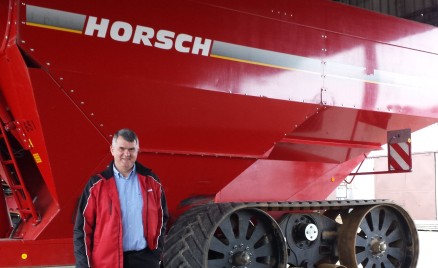
Michael Horsch is one of four sons born to a Mennonite farming family in West Germany. They all wanted to be pig farmers but the farm wasn’t big enough to support them all. Michael had to find his own way.
He left high school when he was 17, did one year at agricultural college and went to work on farms in the United States for two years. At the age of 21 he returned home to Germany, determined to save enough money to buy his own farm.
Meanwhile, his father and grandfather were pioneering early ideas around minimum-till and no-till (jargon alert for non-farmers – this basically means growing crops with no or very little soil disturbance). Back then, the idea of not ploughing your land was considered insane.
“If the land wasn’t turned once a year you were considered to be a bad farmer,” Michael told our group of Nuffield Farming Scholars during our visit to his demonstration farm ‘Agrovation’ in the Czech Republic.
“There was no research, they just had to figure it out for themselves. They were very progressive guys.”
This conversation happened in March, during my Global Focus Programme trip to Eastern Europe.
Our small crew of Nuffield Scholars were sitting around a table with cups of coffee in a newly-built meeting room, with a half-ignored Powerpoint presentation in the background. I got the impression Michael preferred to sit and chat than flick through slides on a projector.
He continued the story.
“The land on our farm was very stony and they knew they couldn’t farm it with loads of labour and machinery to remove the rocks. [No till] was a cost-based decision.
“Then they learnt that if you got away from ploughing you can make changes to the soil structures and microbial life.
“The neighbours said it wouldn’t work. They thought we would go broke and they would be able to buy our land!
“But if everyone is against you it just makes you tougher. We really stuck together and worked hard at it. We were going to make it work as a family.”
It was the early 1980s and fresh from America, Michael spotted a way of helping his family and furthering his dream of buying a farm at the same time.
“I had an idea about a no -till seeder and asked if I could build a machine. My dad said yes and my uncle wanted one too.
“They said; ‘If it doesn’t work we will make it work’. And this was how it started.
“The first machine was a rotavator with a three tonne seed tank. The big problem was my idea was about making quick money so I could buy a farm.
“I was not interested in farm machinery but my uncle said; ‘this is the best thing since sliced bread! Sell it to everyone!'”
Michael didn’t just go on to sell machines, he sold a whole new philosophy around soil management.
“Before we started selling machines we had to convince people about going from one cropping system to another. You have to be a passionate farmer if you’re doing something weird and to go against everyone else’s opinion.”
In 1983 Michael built a revolutionary seeder on three wheels. Before he’d even fitted the cab and painted it, he had 10 buyers (by the way, the reason Horsch machinery is red is because that’s the only colour the local hardware store could supply in enough volume).
But things didn’t really take off for Horsch until the Berlin Wall came down in 1989. Suddenly it opened up the grain regions of East Germany and Eastern Europe and Horsch became seriously big players in agriculture.
“Today we spend more on research and development and marketing than anyone else in the industry,” said Michael.
“We are the biggest players in grain seeding. We are not driven by profit, we are driven by passion. We build things for ourselves. We have a total of 11 farms and this [Czech demo farm] is our base for new ideas and practices.”
Michael never did become a full-time farmer, although I suspect he may hang on to the dream. He thinks and talks like one, and Horsch headquarters is based on the original family farm in Germany, where his brother still farms pigs.
So why did Michael Horsch make such an impression on me? Because of something he said about modern farming practices; something I wouldn’t expect to hear from a man who’s made a living out of selling machines to improve crop production.
“I think we’ve seen the highest yields ever,” he said, pausing for effect.
He went on to say herbicide resistant weeds, such as black grass, are signs that Mother Nature is unhappy, that something is out of balance and she – Mother Nature – will take back what’s hers, irrespective of the technology thrown at her. You can’t fight nature.
There were raised eyebrows all round, followed by nods of agreement.
He went on to say conventional agriculture is being squeezed by two increasingly powerful forces – Mother Nature and the “honest food movement” (i.e. consumers taking a keener interest in how their food is produced and its impact on the environment).
He ended with some food for thought.
“You ask me today where I see the next 10 to 20 years of farming going? Well..,” he grabbed two coffee cups and put them at opposite ends of the table.
“If this side is organic and this side is highly intensive, then I’d say we’re going right through the middle.”
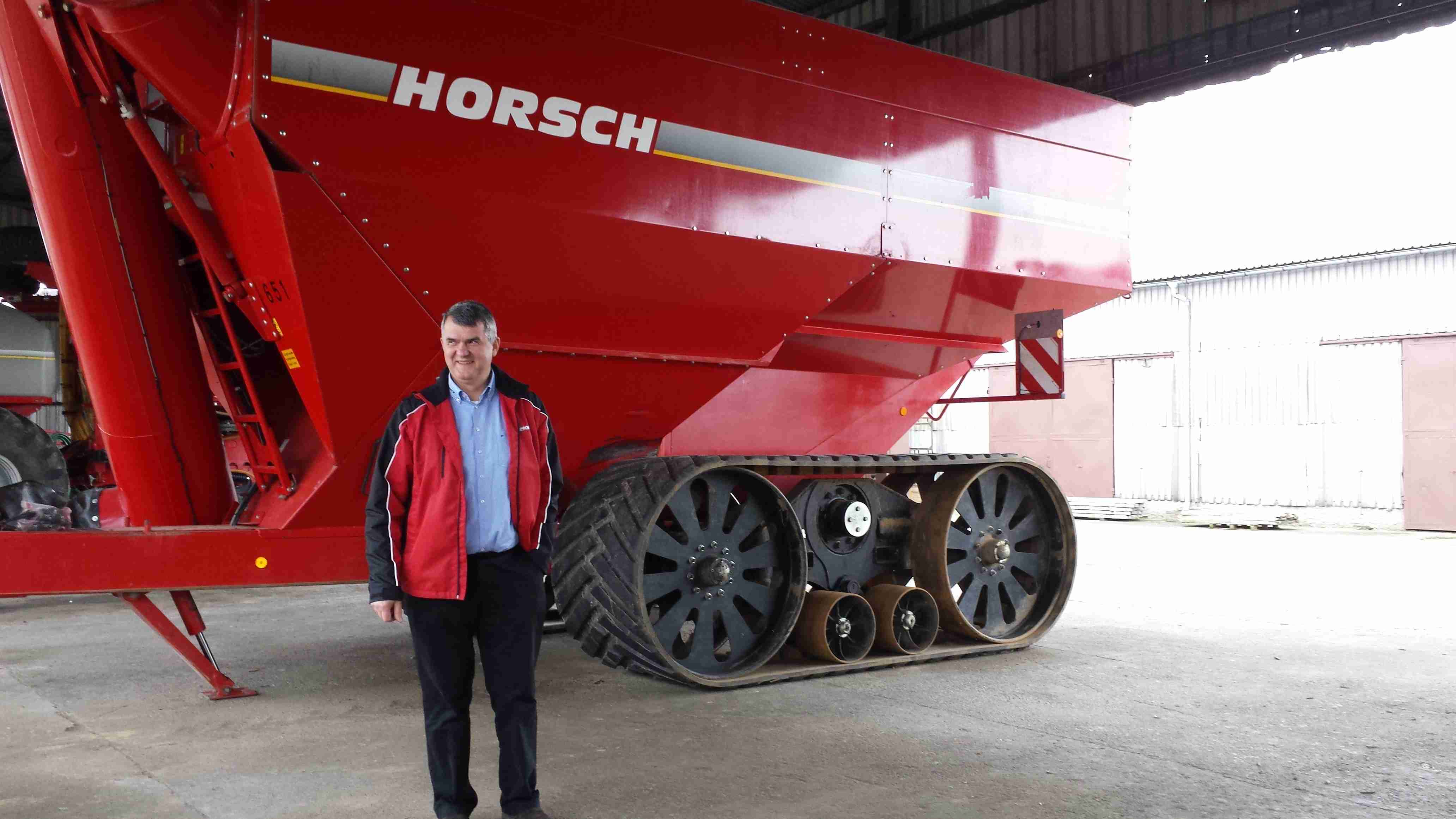
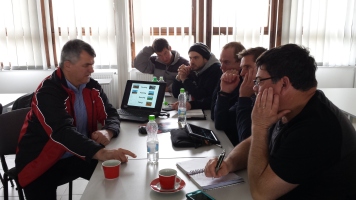
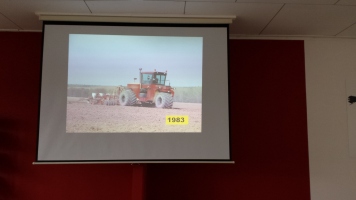
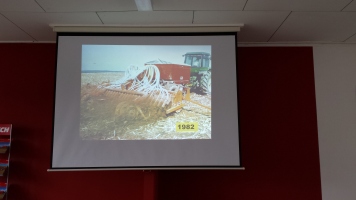
![[000006]](https://jonesthejournodotcom.files.wordpress.com/2016/09/000006.jpg?w=1080)
